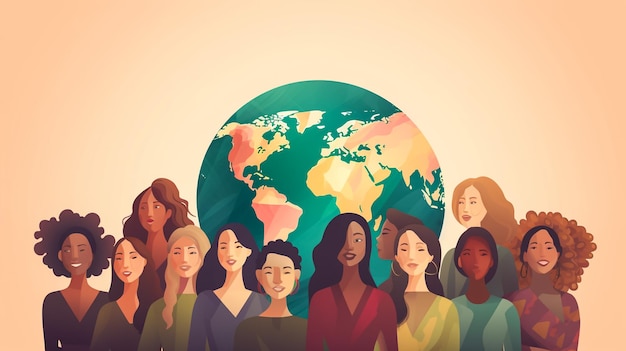
A little over seventy years ago, the United Nations proclaimed Global Women’s Rights as universal human rights. These rights include a fair and equitable salary, an education, the ability to own property, the freedom to vote, and a life free from violence, enslavement, and prejudice.
“Women’s rights are human rights” has become a famous adage. All of these rights should be accorded to women. Still, women and girls continue to face denial of these rights, frequently based on their gender, in nearly every country on Earth.
Changing how nations and communities function is just as crucial as providing chances to specific women and girls while fighting for women’s rights. To achieve this goal, we must work to alter existing rules and legislation, influence public opinion, and support powerful women’s groups and movements.
Facts about Global Women’s Rights
The origins of gender inequity are hard to pinpoint
When did Global Women’s Rights start to be endangered? A 2019 article in Cosmos Magazine cited research from the European Journal of Archaeology that sheds light on the matter. The study aimed to determine whether gender inequality existed in prehistoric times before the creation of written records. Archaeologists examined over 500 remains from 21 sites, dating back 5,000 to 8,000 years. Approximately one and a half male graves were found for every female cemetery. However, the gender of the majority of the bodies could not be identified. According to the researchers, this data may reveal a “cultural element,” which would explain why children and women were less likely to get a traditional funeral. The authors think their results show that more research on archaeological sites is needed.
Gender inequality, according to a 2017 study, first appeared in China around the Bronze Age. Scientists discovered that men’s graves had more valuable artefacts. Skeletons in females also experienced an abrupt shortening. Because they weren’t considered as valuable as males, women may have had less nutritious food than children due to improvements in farming practices during this time, which included the introduction of new plants and tamed animals. Gender disparity probably isn’t the same everywhere globally, and its exact origins will remain a mystery. For a very long time, women’s rights have been undervalued in many areas.
The rights of women are not universally devalued
The world does not necessarily view women in a negative light. The Mosuo people of China’s Yunnan and Sichuan provinces provide an excellent illustration. The Mosuo are a nomadic people who have preserved a matrilineal or matriarchal social order. As a result, females take the role of breadwinners and keep the household budgets in the family. Additionally, girls inherit wealth from their mothers. Marriages can be readily ended when both partners agree to do so. Women do better in this system, according to research on the Musuo, though other variables certainly contribute. Even under this system, men can succeed and enjoy greater political power and personal independence.
The status of global women’s rights changes over time
Advancing Global Women’s Rights has not been a straight line. From time to time, it was all over the map. As reported by History on the Net, women in Sumer had greater legal protections than their contemporaries in the Akkadian, Babylonian, and Assyrian civilizations. Women in Sumer had several opportunities, including being scribes, priestesses, doctors, and business owners (with a spouse). However, scholars believe that as Mesopotamian societies grew richer, a patriarchal structure took root and flourished. Time is not necessarily a friend when advancing women’s rights in Mesopotamia.
The right to vote for women is universal
Women are now officially able to cast ballots in any country that has a voting system. In 1893, New Zealand became the first country to provide women the right to vote. In 1902, all White women in Australia were granted the right to vote and to run for parliament by the Commonwealth Franchise Act. At least nineteen Asian and European nations approved the 19th Amendment before the US did in 1920, according to Pew Research. The Saudi government gave women the vote in 2015. The ability to vote is different from the right. In 2015, 10% of Saudi women voted. Women have voted in Pakistan since 1947.
Conclusion
Genuine equality will not exist until women and girls are granted all of their Global Women’s Rights, including but not limited to equal income, the right to own land, the right to sexuality, the right to be free from violence, the right to an education, and the right to better maternal health. Economic and political transformation can only occur when women assume positions of leadership and peacemaking and are granted equal political voice. Only then can every girl and woman exercise her right to self-determination.








